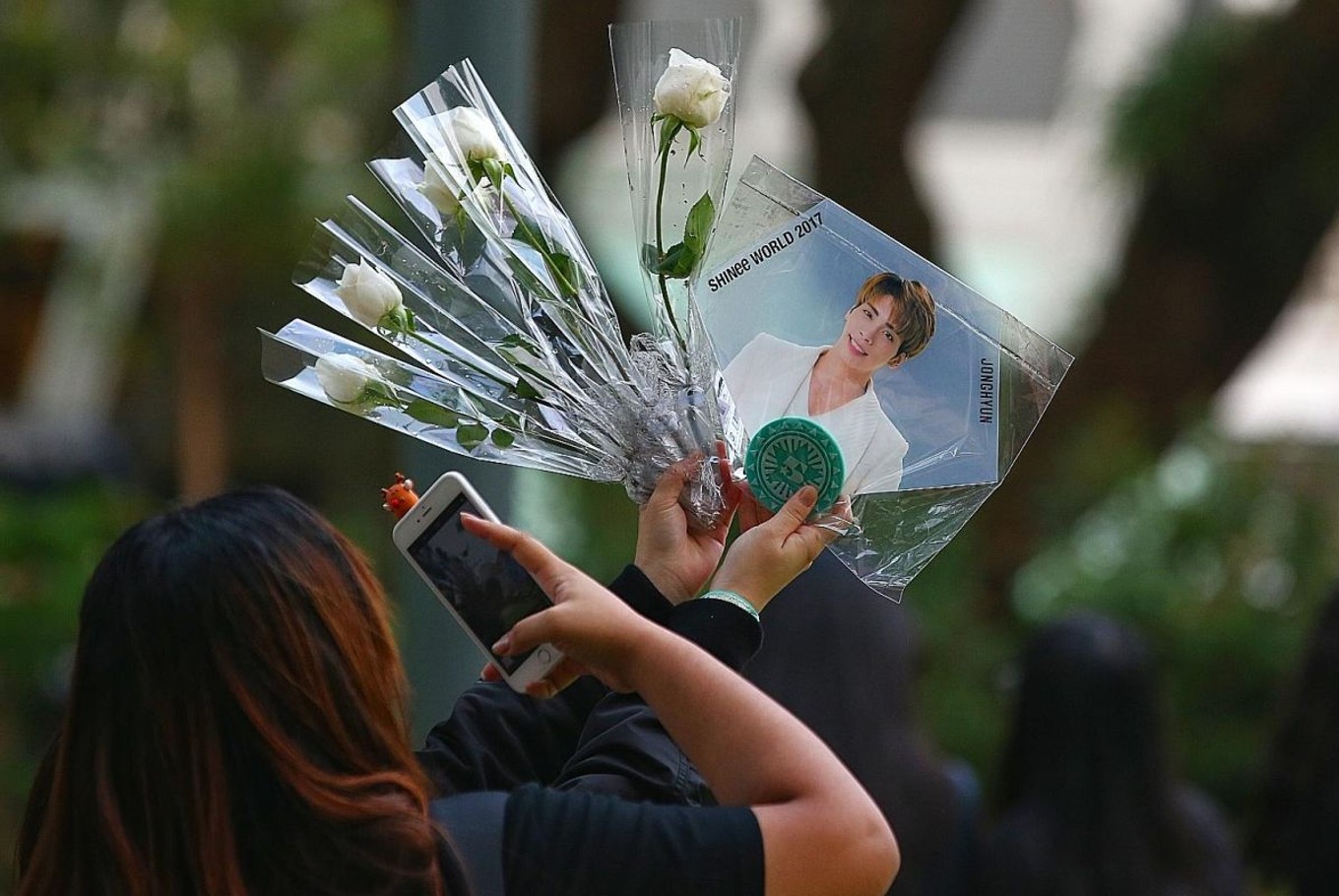Popular Reads
Top Results
Can't find what you're looking for?
View all search resultsPopular Reads
Top Results
Can't find what you're looking for?
View all search resultsAll that glitters is not gold: K-pop stardom comes at a heavy price
South Korean pop stars appear to have the world at their feet - they attract legions of eager fans and lead glamorous lifestyles involving expensive outfits and fancy parties. Yet, the glitz often comes at a heavy price, with gruelling training schedules, constant judgment and strict management control among some of the biggest concerns.
Change text size
Gift Premium Articles
to Anyone
S
outh Korean pop stars appear to have the world at their feet - they attract legions of eager fans and lead glamorous lifestyles involving expensive outfits and fancy parties.
It is why so many young men and women, whether within South Korea or beyond, including in Singapore, continue to harbour K-pop star dreams.
Yet, as many K-pop star hopefuls have learnt, the glitz often comes at a heavy price, with gruelling training schedules, constant judgment and strict management control among some of the biggest concerns.
As Singaporean singer-songwriter Gen Neo, who worked for years in South Korea as a K-pop composer and producer before debuting as a singer in 2015, puts it, the K-pop celebrity system "is a judgy one".
The 28-year-old told The Sunday Times: "People want K-pop stars to be completely perfect and they forget that they're human beings and not mascots."
The darker side of K-pop has been a hot topic, following the recent death of boyband SHINee's lead singer Kim Jong Hyun.
The 27-year-old, who was better known by his stage name Jonghyun, was found dead in a rented apartment in Seoul on Monday evening. His death was ruled a suicide.
He had been battling severe depression and although he did not detail the reasons for his condition, a farewell note that he left behind pointed to his struggles with the crushing pressures of being a K-pop celebrity.
The note read: "I guess I was not meant to lead a life in the public eye. That's why it was hard. Confronting the world, and being in the public eye.
"Why did I choose this path? It's quite funny now that I think about it. It's a miracle that I endured through it all this time."
Kim is the latest K-pop star known to have suffered from the pressures of chasing fame in the industry.
In 2011, South Korean rapper G-Dragon talked about being depressed after he was accused of plagiarism, while singer and actor Jeong Jin Woon from 2AM revealed that he suffered from depression following his group's American tour in 2010.
A Singaporean member of the now-defunct K-pop girl group SKarf had also reportedly felt great stress during her time with the band between 2012 and 2014.
Singer Ferlyn Wong, 25, told The New Paper in May last year that she had suffered depression after attempts to lose weight.
The article quoted her as saying: "The lifestyle there was overwhelming and I took diet pills to lose weight. (But they) had side effects.
"After taking them, I had severe mood swings. One moment, I'd be happy and, the next, I'd be crying for no reason.
"I started seeing things too and I'd have suicidal thoughts every other day."
When contacted for this story, she declined to comment further.
Read also: Kim Jong-Hyun indicated depression through tattoo
K-pop management agencies place great emphasis on their stars' physical attributes. From extreme diet and exercise plans to plastic surgery appointments, K-pop singers are constantly expected to look only their very best, which can take a toll on their mental health.
Singaporean dance instructor Jojo Hung, 27, experienced that kind of intense physical judgment when she was in South Korea in 2015 to film the reality television series Miss Korea: Julia And Jojo.
She and Australian-Chinese student Julia Wu, 22, had been selected out of 300 applicants to star in the show. The pair travelled through Seoul while working towards becoming pop idols. Their three-month stay included singing and dancing lessons before the chance to audition at Korean management agencies.
Hung tells The Sunday Times: "My experience on the show was mostly a very good one because it gave me the exposure and the chance to see what things were like over there.
"But I remember the time when we had to see a plastic surgeon for the show. To me, my co-star Julia is super pretty, but he was telling us that we needed to change so many parts of our faces. That was quite shocking."
Often, it is difficult for K-pop singers to voice their concerns to their bosses, due to the hierarchical and extremely formal structure of South Korean society.
Gen Neo says: "You can compare someone's age to ranks in the military. The older the person is, the more one's respect has to be shown to them, even if the age gap is only a year.
"Of course, we're respectful of our seniors in Singaporean Chinese culture too, but imagine this rule taken up 10 notches. It makes it difficult for people to voice their opinions or disagree with people older than them."
He and Hung have since moved on to pursue other paths.
Gen Neo is working as a Mandopop singer-songwriter in China, while Hung is seeking dance opportunities here.
SKarf's Wong is reportedly also trying to break into the Mandopop market in China and Taiwan.
Regardless of where they are, Hung points out that being in the media spotlight will never be easy.
She says: "Things could be extreme in the K-pop industry, but as long as you're in the entertainment business, there will be expectations and pressure.
"It's not something we can avoid, but it's about learning to deal with it and receiving help if necessary. For anyone chasing their dreams of becoming a star, that's an important thing to think about."
This article appeared on The Straits Times newspaper website, which is a member of Asia News Network and a media partner of The Jakarta Post











